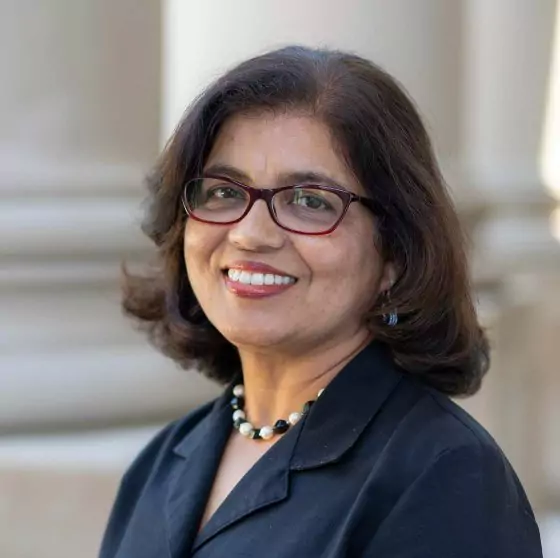On August 1st of this year, Monmouth University welcomed its own Rekha Datta, Ph.D. as the new Interim Provost and Vice President for Academic Affairs. Dr. Datta has been a professor in the political science department at Monmouth since 1994, and she is also the founder of the Institute for Global Understanding at Monmouth University. To learn more about Dr. Datta’s extensive contributions to the university, you can click here.
Dr. Datta graciously answered some pressing questions exclusively for The Verge related to academics, university life, what’s on the horizon for Monmouth, and her goals in this new role.
Q: What are some of the overarching goals that you would like to achieve as provost?
A: During my time as Interim Provost, I would like to emphasize a culture of respect, collaboration, and shared governance. I will encourage the academic units to continue to work collaboratively with other units on campus in this shared enterprise. This effort will also entail closer collaboration with faculty leadership in the council and the faculty union.
Perhaps more importantly, I will look closely at how we can continue to offer a first-class academic experience for our students and remain administratively efficient, accountable, and streamlined. Nationally, the rising cost of higher education is making it difficult for families to afford a college education. We have to ensure that we offer quality education and first-class service through academic distinction and administrative units that are nimble and sustainable during this time of financial challenge, which is exacerbated by declining enrollment trends.
Q: In what ways are academics impacted by diversity, and why is diversity important to the university?
A: As a university, we celebrate creativity, innovation, and enhance our diversity of heritage, class, identity, and ideas. The university is a marketplace of ideas. Ideas lead to innovation. Working with diversity of background, heritage, and ideas make us better thinkers and better humans.
Q: What efforts does the office of the provost make to empower those who may be disadvantaged or marginalized?
A: I plan to work closely with the campus community and the committee on Diversity and Inclusion. Creating a welcoming environment for everyone, more than just events geared toward specific groups, and involving everyone will be conducive to a culture where everyone feels welcome and achieve their fullest potential.
Q: How will the university improve and expand in the coming years in terms of academic programs offered?
A: We are working on new programs, both undergraduate and graduate, which will offer some exciting opportunities for students. Our move to 120 credits will free up space and time for students to graduate early, or to pick up additional courses of study to prepare themselves better for life after Monmouth.
Q: Other than the new education doctoral program, are there any other doctoral programs on the horizon for Monmouth?
A: Social work is working on one. In addition, we are working on the doctorate in Occupational Therapy (OTD).
Q: What are some of the benefits to first year seminar, and do you feel that it is important to the overall academic development of a student?
A: A first year experience, whether in the form of a course or student engagement is vital to incoming students. Such programs best serve students when they address issues regarding transition to college/university, living away from home, time management, inculcate school spirit, and make students feel a part of the university community.
Q: How do you feel about the academic support services that Monmouth offers, and are there any ways that the university can better serve students struggling with their classes?
A: We have made a strong commitment for student success – academically and overall. Academic support in the form of advising, tutoring, writing, and other support services are readily available for all students.
Q: With more and more high school graduates pursuing bachelor’s degrees in the last several years, what do you argue is the advantage to pursuing higher education than alternative career paths?
A: It is true that the cost of attending college is rising. When adjusted for inflation, it has almost doubled in the last three decades. Yet, according to “one study from Georgetown University, on average, college graduates earn $1 million more in earnings over their lifetime. Another study by the Pew Research Center found that the median yearly income gap between high school and college graduates is around $17,500.” In addition, college provides an excellent opportunity for self-growth, and channeling creative passions of students, to make them successful in life. They make life long friends, and thrive in the diversity that college provides.
Q: In summary, how does Monmouth prepare its students for life after graduation? Not simply in terms of career related endeavors, but also in terms of worldview, life challenges, etc.
A: Through its curricular and extra-curricular programs, Monmouth offers a wide array of opportunities for students to challenge their intellectual ability, engage in service learning projects, serve the local and global communities, develop informed opinions and respect diverse perspectives, and expand their horizons. Through faculty led and other opportunities to study abroad, they are offered opportunities to get out of their comfort zones and realize their full potential. Through clubs, organizations, academic sports, and community engagement, students become active citizens ready to enrich their communities, wherever their careers and passions take them.




